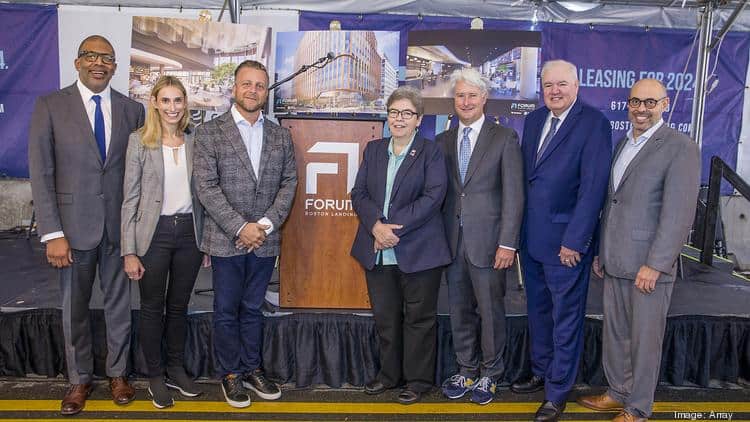News

By Greg Ryan – Senior Reporter, Boston Business Journal
Sep 23, 2022
In the labs popping up across Greater Boston, developers are seeking to connect their projects with surrounding neighborhoods. Public officials and planning boards are reluctant to endorse an impenetrable fortress that offers few jobs for local residents, so it project teams are looking for ways to open doors — literally and figuratively — to the public.
As of this week, they have one more option to do that.
Under a new initiative called the Life Sciences Career Hub, Cambridge-based MassBioEd is looking to partner with developers to bring job forums, networking events and career counseling to the region’s life sciences buildings, with an eye on helping those without a college degree find work in the fast-growing industry.
Global real estate firm Lendlease is the initiative’s first funder. MassBioEd will offer the programming in the Boston Landing lab building, a 350,000-square-foot project managed by Lendlease and Ivanhoé Cambridge, which formally broke ground on Thursday and is expected to open in 2024.
The goal is to create a group of developers so that the nonprofit can offer the programming in labs across the region.
“The model is that we might be in Allston on Tuesdays, in the Seaport on Wednesdays and in Roxbury on Thursdays. We want to be present in the neighborhoods, and we want to offer information to people who need it,” said Sunny Schwartz, MassBioEd’s chief executive.
Executives at Lendlease are in conversation with other developers about enlisting in the initiative. The nonprofit has “a really good conception of how to get a career up off the ground,” said Nick Iselin, Lendlease’s executive general manager of development in Boston.
“One project is not going to do it. We’re going to develop a consortium, with two, three, four to start. It will be 10,” Iselin said. “It takes a commitment to get it going. We’re that commitment.”
The initiative’s goal is to show participants pathways to a life sciences career, not to offer on-the-spot training. One of those pathways is an apprenticeship program run by MassBioEd itself, in which workers without a college degree get 2,200 hours of on-the-job training at local life sciences companies like Thermo Fisher Scientific and Ginkgo Bioworks.
That program will hold its first graduation in November. Most participants are people of color, according to Schwartz, and the vast majority are expected to land full-time, permanent jobs at the companies at the end of their apprenticeships, in roles like biomanufacturing technician and clinical trial associate.
Other developers have struck similarly minded partnerships with other nonprofits, such as Marcus Partners’ role in expanding a New York-based mobile laboratory to the Boston area, and Tishman Speyer and Ruggles Progressive Partners’ proposal to put on-site job-training programming from the Benjamin Franklin Institute of Technology at Roxbury’s Parcel P3.

 MassBioEd
MassBioEd